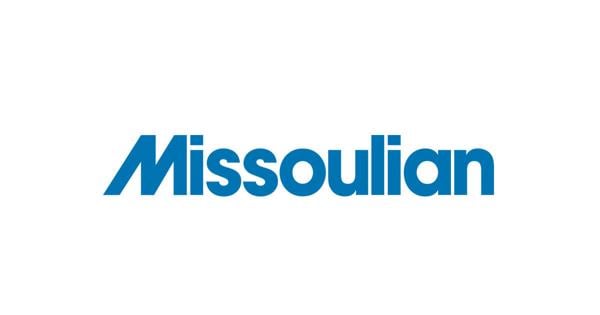Montana’s rematch for the western congressional district between incumbent GOP U.S. Rep. Ryan Zinke and Democratic challenger Monica Tranel is playing out in communities where housing affordability and availability has looked and felt like a crisis for longtime residents.
It’s an issue that transcends partisanship, but there’s still some room for disagreement on whether Congress and the federal government have the ability to drive solutions on a problem that’s so largely steered by market forces for building materials, local zoning regulations and state tax policy.
The western district covers communities like Bozeman, Missoula and the Flathead Valley, where local governments are scrambling against the headlines of rising home prices and shrinking rental availabilities. Rural communities have not been spared, either. Granite County saw the highest spike in median residential value in the state last year at 67%.
People are also reading…
The Montana State News Bureau put five questions to the Zinke and Tranel campaigns about housing, asking them to weigh in on the housing plans put forth by this year’s presidential candidates and for specific policies they would support if elected in November.
The also asked about shortterm rentals. Tranel’s campaign has tried to weaponize that issue against Zinke, who owns several, but declined for this story to comment on her past stock ownership with Airbnb. Democratic operatives, meanwhile, recently dug up permitting records indicating Zinke’s family is operating two of their short-term rentals without the proper permitting.
Given a week to respond to the Montana State News Bureau’s questions, Tranel’s campaign responded to all five questions. Zinke’s campaign responded to one question, regarding only his short-term rentals.
How does housing rank with voters you’ve spoken with?
Tranel said her campaign across the district has heard from every age group in rural and urban Montana that the cost of housing is climbing out of reach.
“First, people talk about the cost of housing as the biggest concern, and if not housing, then it’s the next layer impacting everything else — employees, small businesses and schools being able to fill teacher vacancies,” Tranel said. “Whether I’m talking to college students in Bozeman or seniors in the Flathead, it’s the No. 1 issue I hear.”
Zinke’s campaign did not respond to this question.
In a recent poll commissioned by AARP, the cost of housing was third among respondents in Montana, behind Social Security and Medicare.
How involved should the federal government be in resolving housing affordability and availability?
The shortage of affordable housing is so pronounced that in 2022 Republican Gov. Greg Gianforte signed an executive order declaring the matter a crisis and creating the Governor’s Housing Task Force to recommend strategies from the state level that the Legislature could put into law.
After traveling the district for several months, Tranel in the spring rolled out a three-part housing plan, placing the matter firmly at the center of her campaign. Those parts are summed up with “assessment,” “accountability” and “affordability.” That means collecting data to inform policymaking; attempting to crack down on, for example, corporate landlords for hiking rent prices; and funding private-public partnerships to develop housing projects.
“While state and local governments are crucial in implementing tailored solutions, they need strong federal support,” Tranel said. “The federal government is an important partner in accomplishing the goal of having the people who work in our communities be able to live there. A partnership between federal, state and local governments and between public and private sectors is essential to creating sustainable, affordable housing for all Montanans.”
Zinke’s campaign did not respond to this question.
He did describe a more indirect approach of bolstering the overall economy, theoretically creating a better housing environment downstream of those policies, in a story published in August by the Montana Free Press.
What specific legislation would you support to address the lack of housing?
Tranel raised three pieces of legislation: the Price Act, Appraisal Industry Improvement Act and the Rural Housing Service Reform Act.
The Price Act promotes innovative solutions in how federal contracts are secured.
The Appraisal Industry Improvement Act, sponsored by Democratic U.S. Sen. Jon Tester in March, is intended to strengthen the appraiser workforce.
The Rural Housing Service Reform Act, introduced a year ago, seeks to improve on rural housing programs with the U.S. Department of Agriculture, including making some mortgage loan pilot programs permanent and pay for better IT systems so loans can be processed more quickly.
Tranel also listed 14 different programs she would support funding for homebuyers, homeowners, nonprofits and renters.
Zinke’s campaign did not respond to this question.
Over the last year, Zinke worked with the Montana Housing Authorities to halt the federal housing department from clawing back $3 million in reserve funding for rental assistance. He’s also touted federal infrastructure as a matter of mitigating Montana’s population growth and sought to create a research program on increasing rents in low population, “noncoastal” areas like western Montana, where rents can be thrown off by tourism seasons.
Are short-term rentals part of the problem?
Tranel said they are, while noting the problem is more acute in places like Whitefish.
“That means homes sit empty and are too expensive for people living and working in the community,” Tranel said. “When houses are turned into vacation rentals, it drives up housing prices and leaves fewer options for Montanans who need a place to live. This practice benefits out-of-state investors and corporations while making it harder for our teachers, nurses and small businesses to find affordable homes.”
Tranel listed $15,000-$50,000 worth of stock investments with Airbnb during her 2022 campaign, a race in which she also took some shots at short-term rentals. That investment is not among those listed in her financial disclosure for the current election cycle.
Asked why she would invest in Airbnb, even temporarily, Tranel did not answer the question directly.
“I have no investment in Airbnb,” she said.
Tranel last month released a campaign ad from inside Zinke’s short-term rental, criticizing Zinke for listing the Airbnb for more than $16,000 per month, although the post for that property is in fact for $288 per night. Prices for rentals can change based on when they’re being used.
However, information provided to the Montana State News Bureau suggests that property, listed as the Snowfrog Inn, is operating as a short-term rental when it is registered with the city of Whitefish as a bed and breakfast.
Both types of rentals pay resort tax to the city of Whitefish. One key distinction is the renter’s access to the kitchen, which is not allowed under Whitefish city code defining bed and breakfasts.
Zinke’s campaign manager, Heather Swift, contended “guests do not have access to cooking facilities,” and the power to the kitchenette is turned off when guests are there. As of Tuesday, however, the Airbnb listing description included “a full kitchen” in its offerings.
Another property on Whitefish Lake listed on short-term rental services does not have a shortterm rental permit with the city.
Asked whether the lack of a permit was intentional, Swift said one of the permits was delayed because of a parking map issue.
“For years the Zinke family has owned and operated rental units offering affordable and quality homes to folks who live and work in town or are just visiting. They pay their taxes, have about a dozen permits and licenses to operate the business, and through all the recent changes with the city code (there have [been] many) one of the newly required permits was delayed because a parking map was missed,” Swift said. “Mrs. Zinke has been working with the city government for the past couple weeks to get it in order, and has received assurances from the city she can still continue operating as normal. That’s what people who operate with integrity do. But Monica Tranel does not operate with integrity.” Swift said Tranel “entered the Zinkes’ property, jumped on the furniture, filmed strange videos, and is now trying to ruin his wife and son’s business.”
“Congressman Zinke has fought for and secured millions of dollars in housing aid for Montana Housing Authority, has helped small communities like Seeley Lake fund infrastructure to support more housing, and is actually providing affordable housing in his hometown,” Swift added. “Monica Tranel just lies and points the finger. We don’t need any more of her kind in D.C., there’s plenty already.”
The Whitefish City Planning and Building Department on Tuesday said the Zinkes’ property on Whitefish Lake had been permitted as a short-term rental in 2021, 2022 and 2023, but did not renew their permit for 2024. The short-term rental did go back on vacation rental listings earlier this year, at which point the city contacted the Zinkes and asked that they submit their permit paperwork. That paperwork is now being processed.
On their own campaign trails this year, presidential candidates have had widely varying approaches to the housing supply problem that spans well outside Montana.
Vice President Kamala Harris on the Democratic ticket has proposed several direct measures, including $25,000 in government assistance for first-time homebuyers, tax breaks for homebuilders focused on firsttime buyers and doubling the so-called Innovation Fund to $40 billion to encourage local governments to remove regulations that prevent additional construction.
Asked if he would support Harris’ plan, or could offer any criticisms of it, Zinke’s campaign did not respond.
Tranel did not comment on whether she would support Harris’ proposals but pointed to similar measures in her own housing plan and said the federal government is “uniquely positioned” to incentivize more construction and promote housing innovation. She also raised reducing insurance premiums for Montanans who have mortgages with the Federal Housing Administration and expanding a first-time homebuyer tax credit to offset interest rates.
“I support measures that align with what will work to address the housing issue in Montana,” Tranel said.
Former Republican President Donald Trump has proposed a less direct approach, such as deporting undocumented migrants to open up availability and pressuring the Federal Reserve to lower interest rates.
Asked for criticisms or whether they believe Trump should take more direct action on housing, Zinke’s campaign did not respond.
Tranel’s campaign suggested the proposals put forward by Trump’s campaign were unserious.
“Anyone interested in working for Montana would understand this is the issue we must solve,” Tranel said. “Ryan Zinke’s focus on culture wars and division does nothing to advance needed solutions on the ground now.”
The general election is Nov. 5.
Seaborn Larson has worked for the Montana State News Bureau since 2020. His past work includes local crime and courts reporting at the Missoulian and Great Falls Tribune, and daily news reporting at the Daily Inter Lake in Kalispell.





